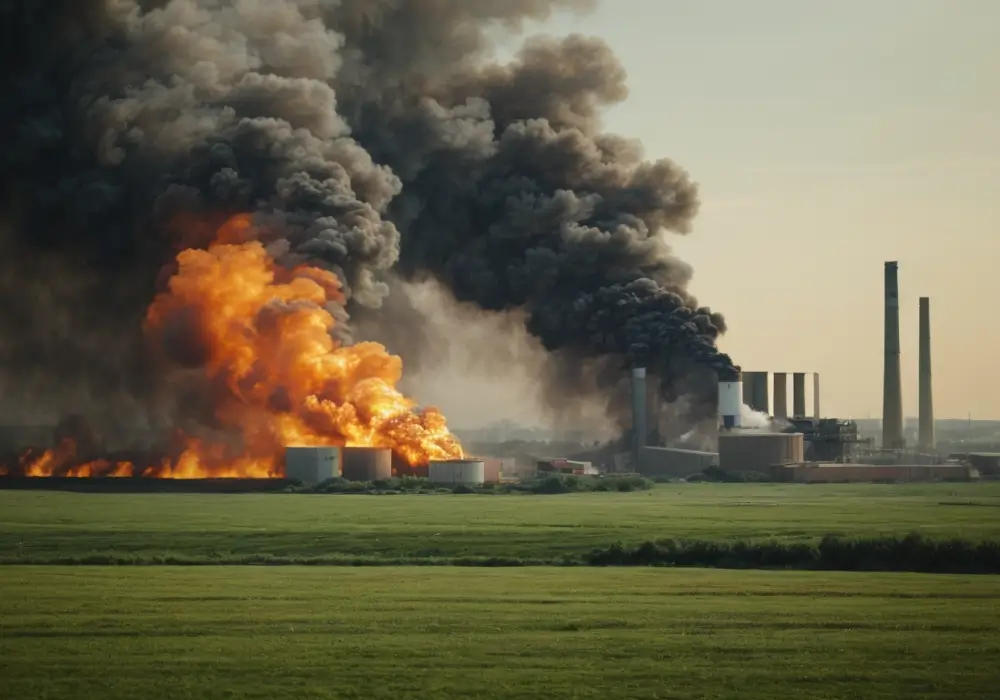
Exploring Global Trends in Industrial Insurance
In today’s fast-paced and ever-evolving world, industries face a myriad of risks and uncertainties. From natural disasters to technological failures, the need for robust insurance coverage has never been more crucial. Industrial insurance plays a pivotal role in safeguarding businesses against unforeseen challenges, providing financial protection and peace of mind. Let’s delve into the global trends shaping the landscape of industrial insurance, understanding its significance, challenges, and future prospects.
Understanding Industrial Insurance
Industrial insurance, often referred to as commercial insurance, provides coverage for businesses and industries against various risks. It encompasses a wide range of policies tailored to meet the specific needs of different sectors, including manufacturing, construction, transportation, and more. Unlike personal insurance, industrial insurance focuses on protecting assets, properties, equipment, and liability associated with business operations.
Key Components of Industrial Insurance
Property Insurance
Property insurance forms the backbone of industrial insurance, offering protection against damage or loss of physical assets such as buildings, machinery, and inventory due to fire, theft, vandalism, or natural disasters.
Liability Insurance
Liability insurance allows businesses to avoid the risk of financial loss resulting from third party claims for bodily injury, property damage or personal injury caused in workplaces within the business.
Business Interruption Insurance
Business interruption insurance provides coverage for lost income and additional expenses incurred when business operations are disrupted due to unforeseen events like fire, flood, or equipment breakdown.
Workers’ Compensation Insurance
Workers’ compensation insurance compensates employees for medical expenses and lost wages resulting from work-related injuries or illnesses, while also protecting employers from lawsuits related to workplace accidents.
Emerging Trends in Industrial Insurance
Risk Management Solutions
With the increasing complexity of risks faced by industries, there’s a growing demand for innovative risk management solutions and customized insurance products to address specific challenges effectively.
Data Analytics and Predictive Modeling
Advancements in data analytics and predictive modeling enable insurers to assess risks more accurately, streamline underwriting processes, and develop proactive risk mitigation strategies tailored to individual businesses.
Parametric Insurance
Parametric insurance, based on predefined parameters such as wind speed or rainfall intensity, offers rapid payouts without the need for lengthy claims processing, providing businesses with timely financial assistance after covered events.
Technology’s Impact on Industrial Insurance
Rapid technological advancements, including the Internet of Things (IoT), artificial intelligence (AI), and blockchain, are revolutionizing the industrial insurance landscape by enhancing risk assessment, claims management, and fraud detection capabilities.
Globalization and Industrial Insurance
As businesses expand their operations across borders, the need for comprehensive international insurance coverage becomes imperative to mitigate risks associated with diverse regulatory environments, geopolitical uncertainties, and cultural differences.
Environmental Risks and Coverage
With growing concerns over environmental sustainability and climate change, industrial insurance policies increasingly include coverage for environmental liabilities, pollution-related damages, and remediation costs to ensure compliance with regulations and protect against financial losses.
Cybersecurity Concerns and Insurance
In an era of escalating cyber threats and data breaches, cybersecurity insurance has emerged as a critical component of industrial insurance, offering protection against losses resulting from cyberattacks, data theft, ransomware, and business interruption.
Regulatory Landscape
The regulatory landscape governing industrial insurance continues to evolve, with regulators focusing on enhancing consumer protection, promoting market stability, and fostering innovation while ensuring compliance with stringent solvency and capital adequacy requirements.
Industry-specific Policies
Different industries face unique risks and challenges, necessitating specialized insurance policies tailored to their specific needs, whether it’s product liability coverage for manufacturers, cargo insurance for logistics firms, or errors and omissions insurance for professional services providers.
Sustainable Practices and Insurance
With sustainability becoming a top priority for businesses worldwide, insurers are increasingly offering incentives and discounts for companies implementing sustainable practices, such as energy-efficient technologies, green building designs, and waste reduction initiatives.
In conclusion, the landscape of industrial insurance is undergoing significant transformation driven by technological innovations, evolving risk landscapes, and changing regulatory dynamics. Businesses must adapt to these global trends by embracing proactive risk management strategies, leveraging technology-enabled solutions, and staying abreast of emerging risks to ensure comprehensive protection against unforeseen challenges.
Frequently Asked Questions (FAQs)
- What does industrial insurance cover?
- Industrial insurance covers a wide range of risks, including property damage, liability claims, business interruption, workers’ compensation, environmental liabilities, and cybersecurity threats.
- How does technology impact industrial insurance?
- Technology enhances risk assessment, claims management, and fraud detection capabilities, enabling insurers to offer innovative solutions and streamline processes for better customer experiences.
- Is industrial insurance mandatory for businesses?
- While certain types of industrial insurance, such as workers’ compensation, may be mandatory depending on jurisdiction and industry regulations, other coverages are often recommended to mitigate financial risks effectively.
- How can businesses mitigate environmental risks through insurance?
- Businesses can mitigate environmental risks by obtaining specialized insurance coverage for pollution liability, environmental damages, and remediation costs, ensuring compliance with regulations and safeguarding against financial losses.
- What are the key considerations when choosing industrial insurance?
- Key considerations include understanding specific industry risks, assessing coverage needs, comparing policy features and exclusions, evaluating insurer reputation and financial stability, and seeking guidance from experienced insurance professionals.
By addressing these FAQs, businesses can gain valuable insights into the importance of industrial insurance and make informed decisions to protect their assets, operations, and stakeholders effectively.






